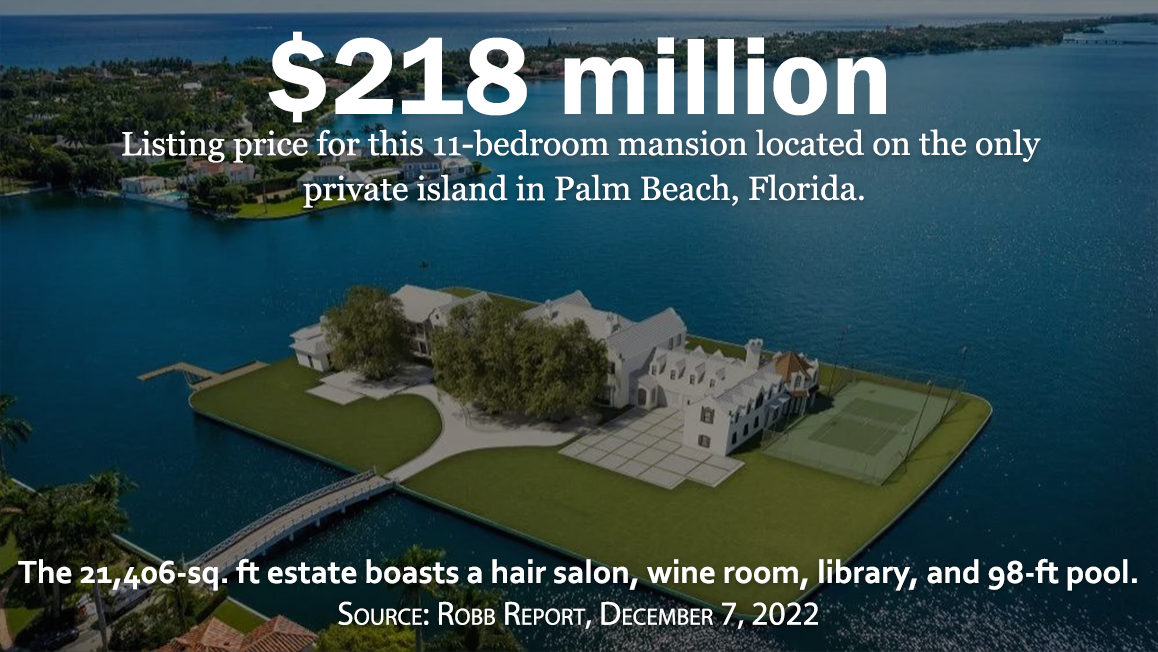| THIS WEEK |
Congress is running up against the clock. Democrats in the Senate and House of Representatives have just a few, dwindling days to move their legislative priorities before Republicans regain control of the House in the new year and gridlock becomes all but inevitable.
Immigration, voting rights, and funding for the National Labor Relations Board (more on that below) make up just part of the daunting to-do list Congress faces before the holidays. Last week’s re-election of Senator Raphael Warnock does offer promise for the future, but overall prospects for legislative progress in the years ahead feel like a dream of yore.
“Any Republican that’s out there trying to work with [Democrats] is wrong,” as Rep. Kevin McCarthy, the potential incoming Speaker of the House, told Fox News recently.
But things don’t have to be this way. Americans on both sides of the aisle do share common ground: on reining in the 1 percent running roughshod over the rest of us. Banding together to press officials — at both state and federal levels — to privilege constituents over corporate lobbyists can cut through gridlock and deliver real results for us all.
From booming unionization to huge legislative victories, 2022 has turned out to be a banner year in the fight against inequality. We’re compiling a list of top triumphs and would love to hear from you. Reply to this email or DM us @inequalityorg on Twitter to share how you think inequality was the biggest loser in 2022 — and ask a friend to do the same. Then look out for your ideas next week! Thanks!
Chuck Collins and Rebekah Entralgo,
for the Institute for Policy Studies Inequality.org team |
|
| |
|
| INEQUALITY BY THE NUMBERS |
 |
|
|
|
| |
|
| FACES ON THE FRONTLINES |
 |
| Notes on a Major Victory for D.C. Domestic Workers |
| On December 7, the Washington, D.C. Council approved a landmark Domestic Workers Bill of Rights that extends crucial recognition and labor protections to nearly 10,000 local domestic workers, with final approval expected to come next week. In most of the nation, legal protections for workers explicitly exclude domestic workers, almost all currently women and mostly women of color. In D.C., notes Erica Sklar, national organizer for Hand in Hand: The Domestic Employers Network, “that changes now.” Sklar, second from left, has been a key player in the domestic workers coalition behind the new D.C. legislation. Read her full Q&A with our Bella DeVaan at the link below. |
|
| |
|
| WORDS OF WISDOM |
 |
|
|
|
| |
|
PETULANT PLUTOCRAT
OF THE WEEK |
 |
| At Tax Time, Shouldn’t Billionaires Deserve a Pass? |
| The richer the rich become, the more invulnerable they feel. Just ask Michael Saylor, the software billionaire now facing charges he doesn’t pay his taxes. Saylor made his initial fortune in Virginia, just across the river from the District of Columbia. By 2005, he was living the high life in the District, partying hardy in his opulent Georgetown manse and on the city’s waterfront in his Mr. Terrible yacht. Saylor was also bragging to friends, D.C. officials charged last month, that only “fools” would pay taxes in the District when they could, like him, just buy a place in income-tax-free Florida and claim residence there. Officials finally got wise to Saylor after a new local law gave insiders a whistle-blowing cash incentive. The still anonymous insiders in the Saylor case could collect “$25 million or more,” notes the Washington Post. The District stands to recoup $150 million. Saylor is claiming innocence and refusing interview requests. |
|
| |
|
| BOLD SOLUTIONS |
 |
| Wanna fight union-busting? Raise NLRB Funding |
President Biden has vowed to be "the most pro-union president" in U.S. history. But his recent decision to sign a bill forcing rail unions into accepting a contract many rail workers had rejected complicates that legacy. Can the administration repair the damage? Fully funding the National Labor Relations Board would make for a good start.
The NLRB — the independent federal agency that oversees union elections, labor practices, and more — has seen an effective 25 percent cut to its funding since 2010, factored for inflation. Staffing levels have dropped by 39 percent over the past two decades, leaving the agency with limited resources to address the union-busting tactics deployed by CEOs and the high-priced consultants who do their bidding.
For Biden's pro-union promise to have any meaning — and more importantly, for the well-being of workers — Congress needs to act to fund the NLRB before the lame duck period ends. Check our just-published op-ed in Newsweek for the details. |
|
| |
|
| GREED AT A GLANCE |
 |
|
|
|
| |
|
| TOO MUCH |
 |
| An Invulnerable Financial Fortress on the Sand? |
| A stirring spectacle along the sandy shores of the Persian Gulf — the 22nd edition of the World Cup — has held our breathless global attention for nearly a month now. But this year’s most consequential development along the Gulf might actually be taking place just a bit down the coast from Qatar. In Dubai, just a six-hour-plus drive away, the world’s rich are discovering what may well become the ultimate in grand fortune-friendly safe havens. Our super rich have, of course, always had their “getaways,” sunny places they could go to stretch out and relax in opulent ease. But Dubai, a sleepy “backwater port” only a few decades ago, is emerging as more than a mere escape from the daily grind of making billions. Dubai may be becoming the place where our slickest deep pockets come to plot their billionaire futures. Inequality.org’s Sam Pizzigati has more. |
|
| |
|
| MUST READS |
|
What's on Inequality.org
Sarah Izabel, Congress: Help Struggling Families Before It’s Too Late. Lawmakers are considering year-end tax breaks for corporations. A little help for families like yours and mine would go much further.
Ana Sandoval, A Mining Lawsuit in Guatemala Shows How Trade Courts Put Big Corporations First. Local resisters are calling for a different economic model — one that prioritizes clean water and soil, healthy communities, peace, dignity, and self-determination.
Phil Mattera, Railway Vote Benefits One of the Least Deserving Industries. Railways owned by the mega-rich racked up huge penalties for mistreatment of workers in the years leading up to the current labor dispute.
Elsewhere on the Web
Steve Wamhoff, Bipartisan Retirement Proposals Are Mostly Just More Tax Cuts for the Wealthy, JustTaxes. The top 40 percent of taxpayers already receive 87 percent of the tax benefits for retirement savings. Pending legislation could raise that share even higher.
Moya Lothian-McLean, The gods of Silicon Valley are falling to earth. So are their warped visions for society, Guardian. The super rich are competing for more than our attention or our cash. They are competing for the right to dictate what our societies look like.
Bill Emmott, When it’s risky to trust billionaires, Khaleej Times. The collapse of the crypto exchange FTX, Meta’s plummeting share price, and the chaos at Twitter after Elon Musk’s takeover suggest that “key people” can pose a very different kind of danger. Call it Napoleonic founder risk.
Ava Kofman, How Hospice Became a For-Profit Hustle, New Yorker. The once visionary notion that patients could die with dignity at home has become a mega-billion-dollar industry that private-equity execs are exploiting to make new fortunes.
Robert Kuttner, Maybe the law schools will start an overdue stampede, American Prospect. Patterns of social class and higher education remain deeply entrenched in the intergenerational inequality of American life. The US News college rankings reinforce that inequality.
Grace Dodd, The Pleasure of Watching Rich People Suffer on Screen, Vice. Movies like The Menu, Glass Onion, and Triangle of Sadness torture the ultra-wealthy — and audiences love it.
John Cassidy, The Averted National Rail Strike Is a Parable of Contemporary American Capitalism, New Yorker. The rail conflict shows what happens when corporate execs prioritize payments to wealthy stockholders over everything else, including serving the public interest.
Renée Darline Roden, In a Violent Economy, People of Faith Try Cooperatives, Sojourners. Co-ops put capital in the hands of workers, consumers, and community instead of the wealthy.
|
|
| |
|
| A FINAL FIGURE |
 |
|
|
|
| |
|
| BE THE 1% (NO, NOT THAT 1%) |
 |
Our goal for 2022: that 1% of our Inequality.org subscribers become monthly sustainers and help grow our newsletter and research efforts. Be the 1%, for as little as $3 a month! |
|
|
|
| |
|
|